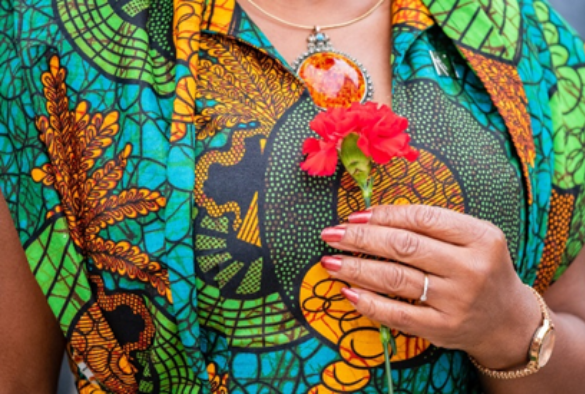
Photo credit Pete Carr
The University of Liverpool’s Centre for the Study of International Slavery (CSIS) is hosting a symposium as part of a city-wide programme of events to mark Slavery Remembrance Day 2024.
The event, on Wednesday 21 August, (2pm-4pm) will bring together museum practitioners, scholars, and community-based historians to discuss the buildings, places, and spaces associated with the representation of slavery and its legacies.
This includes conversations about the Transatlantic Slavery Gallery (1994), the development of the International Slavery Museum, which opened in 2007 during the Bicentenary of the Abolition of the British Slave Trade, and projects, buildings and spaces throughout the African Diaspora.
The event will be hosted by Dr Richard Benjamin, Senior Lecturer for Contemporary Museum Practice and Co-Director of CSIS and focus on how past experiences and new practices can inclusively and equitably shape future museum design and development. Speakers include Professor Ola Uduku, Head of School at the Liverpool School of Architecture, Michelle Charters, Head of the International Slavery Museum and historian Mike Boyle.
Dr Richard Benjamin said: “Slavery Remembrance Day and the related events are important parts of Liverpool’s calendar. The University of Liverpool and the Centre for the Study of International Slavery are eager to be involved and show their support. We are pleased to host this symposium and invite students, staff, and members of the public to join us on campus for a fascinating event on the buildings, places, and spaces associated with the representation of slavery and its legacies.”
Professor Ola Uduku said: “This gives us a chance to reflect on the challenges of recognising and engaging with buildings, spaces and infrastructure, which were often central to and formed the backdrop to this tragic period of the past.”
Designated by UNESCO, Slavery Remembrance Day (23 August) marks an uprising of enslaved Africans on the island of Saint Domingue (modern Haiti) in 1791. The date now serves as a reminder that enslaved Africans were the main agents of their own liberation.
This year marks 25 years since Liverpool first coordinated official commemorative events to mark the date, recognised around the world as a day to remember the millions of lives impacted by, and the lasting legacies of, the transatlantic slave trade.
From new artist commissions, to the annual Walk of Remembrance to the Dorothy Kuya Slavery Remembrance Memorial lecture, delivered by Saint Lucian artist, filmmaker and historian, Fiona Compton in Liverpool’s Town Hall, this special anniversary year brings a varied programme of free events for everyone to feel involved
Michelle Charters OBE, Head of International Slavery Museum, said: “25 years since the city’s first Slavery Remembrance Day, it continues to be an important moment in our busy city to pause and remember the many lives impacted by this abhorrent trade, as well as the legacies and achievements of people of the African diaspora.
“We are looking forward to a very special contribution from Fiona on this significant year, as we mark not only the 25th anniversary of our commemorations, but also look to the future and the next chapter for the International Slavery Museum. We have recently shared our vision for the museum in a series of rewarding public consultations. Listening, sharing and collaboration has given the project new momentum, and as we come together once more to mark Slavery Remembrance Day, we are grateful to all the people who are on this journey with us.”
Centre for Study of International Slavery Symposium – Space and Place – Building on the Past will take place on Wednesday 21 August at the School of Law and Social Justice events space at the University of Liverpool, 2pm – 4pm. You can buy your tickets here.
You can view the full programme of events for Slavery Remembrance Day here.